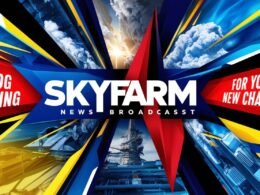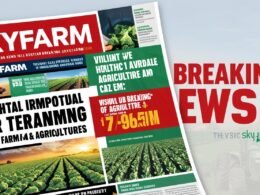| Funding is crucial for farmer programs if they are to be sustained. Some programs got off the air because of lack of funds. This situation shows that it is not all that easy to acquire sponsorship for a program in an industry with a low rate of returns compared with say, buying and selling. The sources listed in our notes represent all the areas one can approach to contribute to the sustainability of farmer radio programs, and I will attempt to examine the prospects of getting something from them. Farmer Associations: Not much cash but can contribute in various ways to the success of program Local Government: In my area the Municipal Assembly has been influential in acquiring airtime from a local FM station to be used by government departments to air their programs. The onus lies on the producer to do his/her job. Businesses: Should be the most reliable source. NGOs: Are good at lobbying, advocacy and networking. They can look for sponsors and not necessarily doing the payment themselves. International organizations: Can contribute if the use of radio is part of projects they fund. For example, the Roots and Tubers Improvement and Marketing Project (RTIMP) funded by the International Fund for Agricultural Development (IFAD) is now using radio programs to sensitize and educate all stakeholders in the project. Government departments: Now experience dwindling budgets but can second their personnel to the program. In any situation, one has to be innovative in order to achieve success. Companies that already advertise their goods and services at the station can be reoriented to sponsor the farmer program by offering them some incentives. Another way of attracting sponsorship is good presentation. Some companies would want to advertise their products on a particular presenter’s program. It is said that a palatable soup draws the consumer’s chair closer to the table. So if the production team is doing a good job it will not be difficult to get funding for the farmer program. Also government departments of agriculture (eg research and extension) can include radio programs in project proposals that they write. | |
| Funding is crucial for farmer programs if they are to be sustained. Some programs got off the air because of lack of funds. This situation shows that it is not all that easy to acquire sponsorship for a program in an industry with a low rate of returns compared with say, buying and selling. The sources listed in our notes represent all the areas one can approach to contribute to the sustainability of farmer radio programs, and I will attempt to examine the prospects of getting something from them. Farmer Associations: Not much cash but can contribute in various ways to the success of the program Local Government: In my area, the Municipal Assembly has been influential in acquiring airtime from a local FM station to be used by government departments to air their programs. The onus lies on the producer to do his/her job. Businesses: Should be the most reliable source. NGOs: Are good at lobbying, advocacy, and networking. They can look for sponsors and not necessarily do the payment themselves. International organizations: Can contribute if the use of radio is part of projects they fund. For example, the Roots and Tubers Improvement and Marketing Project (RTIMP) funded by the International Fund for Agricultural Development (IFAD) is now using radio programs to sensitize and educate all stakeholders in the project. Government departments: Now experience dwindling budgets but can second their personnel to the program. In any situation, one has to be innovative to achieve success. Companies that already advertise their goods and services at the station can be reoriented to sponsor the farmer program by offering them some incentives. Another way of attracting sponsorship is a good presentation. Some companies would want to advertise their products on a particular presenter’s program. It is said that a palatable soup draws the consumer’s chair closer to the table. So if the production team is doing a good job, it will not be difficult to get funding for the farmer program. Also, government departments of agriculture (e.g., research and extension) can include radio programs in project proposals that they write. |
SkyFarm: Funding of agricultural radio programs









